San Carlos Apache health care embodies the resilience of a tribe that has navigated centuries of challenges, from colonization to modern-day health disparities. The San Carlos Apache people, rooted in a rich cultural heritage, face unique health challenges stemming from historical trauma, environmental factors, and limited access to resources.
Their journey towards health equity is a testament to their strength and determination, showcasing the intersection of cultural traditions, modern medicine, and community activism.
This exploration delves into the San Carlos Apache healthcare system, examining its structure, services, and the critical role of the Indian Health Service (IHS) in supporting the tribe’s well-being. We’ll explore health promotion programs, environmental health concerns, and the persistent issues of mental health and substance abuse within the community.
The narrative highlights the ongoing efforts to address these challenges, emphasizing the importance of partnerships and collaborations in building a healthier future for the San Carlos Apache people.
San Carlos Apache Tribe History and Culture
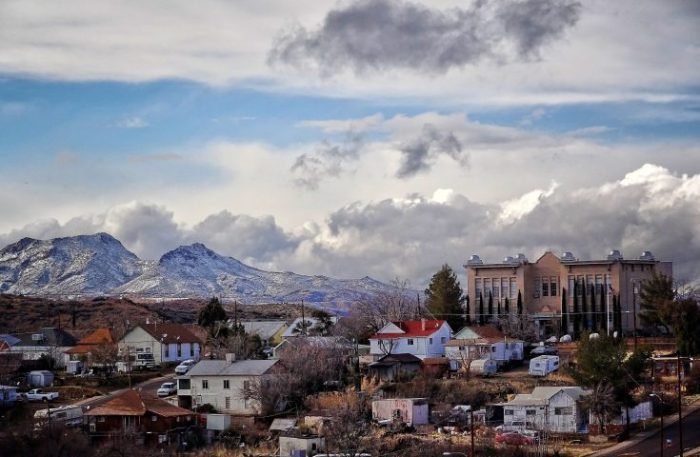
The San Carlos Apache Tribe, residing in the heart of Arizona, boasts a rich history and vibrant culture deeply intertwined with the land they call home. Their story is one of resilience, adaptation, and enduring traditions that have shaped their identity for centuries.
Ancestral Lands and Cultural Traditions
The San Carlos Apache Tribe’s ancestral lands encompass a vast and diverse territory in central Arizona. Their connection to this land is profound, deeply embedded in their cultural traditions, language, and spiritual beliefs.
- Traditional Practices:The San Carlos Apache Tribe has a long history of traditional practices that reflect their connection to the land and their respect for nature. These practices include gathering, hunting, and farming, which have sustained the tribe for generations.
- Language:The San Carlos Apache language, known as ‘Nde’, is a vital part of their cultural heritage. It reflects their history, beliefs, and way of life.
- Art and Crafts:The San Carlos Apache Tribe is renowned for its exquisite art and crafts, which often incorporate traditional designs and motifs. Basket weaving, pottery, and beadwork are some of the prominent forms of art that showcase their creativity and cultural expression.
Impact of Colonization and Assimilation Policies
The San Carlos Apache Tribe, like many Indigenous groups, has faced significant challenges due to colonization and assimilation policies. These policies aimed to forcibly integrate Indigenous people into mainstream society, often at the expense of their cultural identities and traditions.
- Land Dispossession:Colonization led to the loss of ancestral lands, disrupting traditional ways of life and access to resources.
- Forced Relocation:The tribe was forced to relocate to the San Carlos Reservation, a smaller and less desirable territory than their ancestral lands.
- Assimilation Policies:Assimilation policies, such as boarding schools and the suppression of Indigenous languages, aimed to erase tribal identities and cultural practices.
Resilience and Adaptation
Despite the challenges they have faced, the San Carlos Apache Tribe has shown remarkable resilience and adaptation. They have actively preserved their cultural heritage, language, and traditions, ensuring their survival and continuity.
- Cultural Revitalization:The tribe has engaged in various cultural revitalization efforts, including language immersion programs, traditional arts workshops, and cultural events.
- Self-Governance:The San Carlos Apache Tribe has established a strong system of self-governance, enabling them to manage their own affairs and protect their interests.
- Community Health:The tribe has prioritized community health, recognizing the importance of physical, mental, and spiritual well-being.
Health Challenges Faced by the San Carlos Apache Tribe
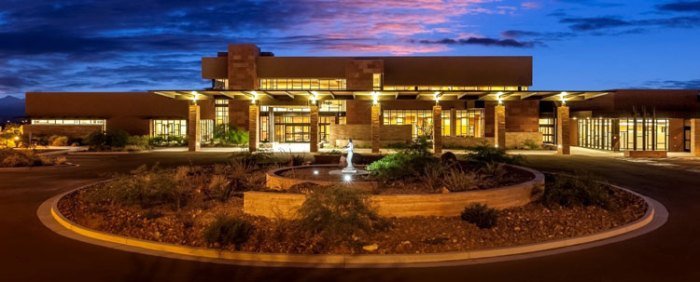
The San Carlos Apache Tribe faces significant health challenges that disproportionately impact their community compared to the general population. These disparities are deeply rooted in historical trauma, systemic racism, and ongoing social and economic disadvantages. Understanding these challenges is crucial for developing effective interventions and promoting health equity for the San Carlos Apache people.
Socioeconomic Factors and Health Disparities
Socioeconomic factors play a significant role in shaping the health outcomes of the San Carlos Apache Tribe. The tribe experiences high rates of poverty, unemployment, and limited access to education, all of which contribute to poor health outcomes.
- Poverty:The poverty rate among the San Carlos Apache Tribe is significantly higher than the national average. This economic hardship limits access to nutritious food, safe housing, and healthcare, contributing to chronic diseases and health disparities.
- Unemployment:High unemployment rates within the tribe limit access to stable employment, which is crucial for financial security and overall well-being. This economic instability can lead to stress, unhealthy coping mechanisms, and reduced access to healthcare.
- Education:Limited access to quality education within the reservation restricts opportunities for economic advancement and can impact health literacy, which is the ability to understand and navigate healthcare information.
Access to Healthcare
The San Carlos Apache Tribe faces challenges in accessing quality healthcare services. The limited availability of healthcare providers on the reservation, coupled with long travel distances to off-reservation facilities, creates significant barriers to accessing timely and culturally appropriate care.
- Limited Healthcare Providers:The lack of healthcare providers on the reservation limits access to primary care, specialty services, and mental health services. This shortage often leads to delayed diagnoses and treatment, worsening health outcomes.
- Travel Distances:The remoteness of the reservation and limited transportation options make it difficult for many San Carlos Apache individuals to access healthcare facilities located off-reservation. This can be particularly challenging for those with chronic illnesses or emergencies requiring immediate care.
San Carlos Apache Health Care is dedicated to providing comprehensive health services to the San Carlos Apache Tribe. One aspect of overall well-being is physical fitness, and the tribe may consider offering discounted memberships to facilities like Planet Fitness , which offers a variety of workout options and a supportive environment.
By promoting healthy lifestyles, San Carlos Apache Health Care aims to improve the overall health and wellness of its community.
- Cultural Barriers:Cultural differences between healthcare providers and the San Carlos Apache community can create barriers to communication and trust, leading to mistrust of the healthcare system and reduced utilization of services.
Environmental Factors and Health
The San Carlos Apache Tribe’s health is also impacted by environmental factors, including exposure to contaminated water, air pollution, and inadequate sanitation. These environmental hazards contribute to a range of health problems, including respiratory illnesses, cancer, and developmental delays.
- Contaminated Water:The tribe’s water sources have been contaminated by mining activities, leading to health concerns related to heavy metal exposure and other pollutants.
- Air Pollution:Air quality on the reservation is often affected by dust from mining operations and other industrial activities, contributing to respiratory problems and other health issues.
- Inadequate Sanitation:Limited access to adequate sanitation facilities on the reservation can contribute to the spread of infectious diseases.
Historical Trauma and Systemic Racism
The San Carlos Apache Tribe has endured a long history of colonization, displacement, and forced assimilation, which has had a profound impact on their health and well-being. Historical trauma, stemming from these experiences, contributes to chronic stress, mental health challenges, and health disparities.
- Generational Trauma:The legacy of historical trauma has been passed down through generations, leading to ongoing stress, anxiety, and depression among the San Carlos Apache people.
- Systemic Racism:Systemic racism has created barriers to access to healthcare, education, and economic opportunities, contributing to the health disparities faced by the tribe.
- Loss of Culture:The forced assimilation policies of the past have led to a loss of traditional knowledge and practices that were essential to the tribe’s health and well-being.
San Carlos Apache Healthcare System
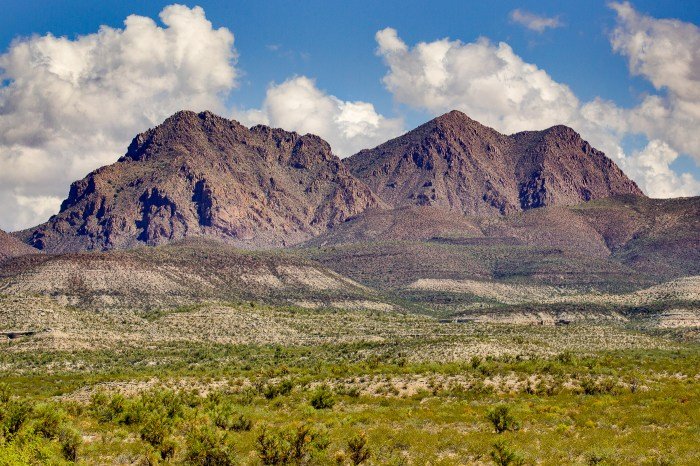
The San Carlos Apache Healthcare System is a comprehensive healthcare system dedicated to providing quality care to the San Carlos Apache Tribe. It operates under the auspices of the Indian Health Service (IHS) and is committed to delivering culturally sensitive and holistic healthcare services.
Organization and Structure, San carlos apache health care
The San Carlos Apache Healthcare System is organized to ensure the efficient delivery of services across the reservation. It comprises various healthcare facilities, including the San Carlos Apache Medical Center, the San Carlos Apache Community Health Center, and several satellite clinics located in different communities within the reservation.
The system is overseen by a Tribal Health Board, which is responsible for setting policies and guiding the overall direction of healthcare delivery.
Services Provided
The San Carlos Apache Healthcare System provides a wide range of healthcare services, catering to the diverse needs of the tribal community. These services encompass:
Primary Care
- Preventive care: This includes regular checkups, immunizations, and health screenings to promote early detection and prevention of diseases.
- Chronic disease management: The system provides comprehensive care for individuals with chronic conditions such as diabetes, hypertension, and heart disease, emphasizing patient education and self-management strategies.
- Mental health services: The system offers counseling, therapy, and support groups to address mental health concerns and promote well-being.
- Substance abuse treatment: The system provides comprehensive treatment programs for substance abuse disorders, including detoxification, counseling, and relapse prevention strategies.
Specialty Care
- Dental care: The system offers a full range of dental services, including preventive care, restorative treatments, and oral surgery.
- Optometry: The system provides eye exams, prescription glasses, and contact lens fittings.
- Women’s health: The system offers comprehensive women’s health services, including gynecological exams, prenatal care, and family planning.
- Pediatrics: The system provides care for infants, children, and adolescents, addressing their unique health needs.
Traditional Medicine
The San Carlos Apache Healthcare System recognizes the importance of traditional medicine in the cultural and spiritual well-being of the tribe. It integrates traditional medicine practices into its healthcare delivery system. These practices include:
- Herbal remedies: Traditional healers use plants and herbs with medicinal properties to treat various ailments.
- Ceremonies and rituals: Traditional ceremonies and rituals are believed to have healing properties and are often incorporated into the healing process.
- Spiritual guidance: Traditional healers provide spiritual guidance and support to patients, promoting emotional and spiritual well-being.
Role of the Indian Health Service (IHS)
The Indian Health Service (IHS) plays a vital role in providing healthcare to the San Carlos Apache Tribe. The IHS is a federal agency responsible for providing healthcare to American Indians and Alaska Natives. It funds and supports the San Carlos Apache Healthcare System, ensuring the availability of essential healthcare services to the tribe.
The IHS also provides technical assistance and training to the system’s staff, enhancing the quality of healthcare delivery.
Health Promotion and Prevention Programs
The San Carlos Apache Healthcare System recognizes the importance of preventative healthcare and has implemented a comprehensive range of programs to address the health challenges faced by the tribe. These programs aim to promote healthy lifestyles, educate individuals about disease prevention, and provide resources for early detection and management of health conditions.
Diabetes Prevention and Management Programs
The San Carlos Apache Tribe has a high prevalence of diabetes, a chronic disease that can lead to serious health complications. To combat this, the healthcare system offers various programs focused on diabetes prevention and management. These programs include:
- Diabetes Education Classes:These classes provide individuals with the knowledge and skills needed to manage their diabetes effectively. Topics covered include nutrition, physical activity, medication management, and self-monitoring of blood sugar levels.
- Diabetes Prevention Program:This program targets individuals at risk for developing type 2 diabetes. It focuses on lifestyle modifications, such as weight loss, healthy eating, and regular exercise, to prevent or delay the onset of the disease.
- Diabetes Support Groups:These groups provide a platform for individuals with diabetes to connect with others who share similar experiences. They offer emotional support, practical advice, and opportunities for peer-to-peer learning.
Heart Disease Prevention Programs
Heart disease is another major health concern for the San Carlos Apache Tribe. The healthcare system has implemented several programs to promote heart health and reduce the risk of heart disease.These programs include:
- Cardiovascular Risk Assessment:The healthcare system provides regular cardiovascular risk assessments to identify individuals at risk for heart disease. These assessments evaluate factors such as blood pressure, cholesterol levels, and family history.
- Heart-Healthy Lifestyle Education:Educational programs are offered to promote healthy lifestyle choices that can lower the risk of heart disease. These programs focus on topics such as nutrition, physical activity, smoking cessation, and stress management.
- Blood Pressure Screening:The healthcare system provides regular blood pressure screenings to detect high blood pressure, a major risk factor for heart disease.
Substance Abuse Prevention Programs
Substance abuse is a significant health challenge facing many Native American communities, including the San Carlos Apache Tribe. The healthcare system offers various programs to prevent and address substance abuse.These programs include:
- Prevention Education:Educational programs are conducted in schools and community settings to raise awareness about the dangers of substance abuse and promote healthy decision-making.
- Substance Abuse Treatment:The healthcare system provides a range of treatment services for individuals struggling with substance abuse. These services include individual and group therapy, medication-assisted treatment, and aftercare support.
- Family Support Programs:The healthcare system offers support programs for families affected by substance abuse. These programs provide education, counseling, and resources to help families cope with the challenges of substance abuse.
Traditional Healing Practices
The San Carlos Apache Tribe has a rich history of traditional healing practices. The healthcare system recognizes the importance of incorporating these practices into its services. The healthcare system collaborates with traditional healers to offer services such as:
- Ceremonial Healing:Traditional ceremonies are conducted to address spiritual and emotional well-being, which are integral to overall health.
- Herbal Medicine:Traditional healers use plants and herbs for medicinal purposes. The healthcare system supports the use of these practices in conjunction with Western medicine.
Access to Healthcare and Transportation
The San Carlos Apache community faces significant challenges in accessing healthcare services. These challenges stem from the tribe’s remote location, limited transportation options, and financial barriers.
Geographic Isolation
The San Carlos Apache Reservation is located in a remote and sparsely populated area of eastern Arizona. This geographic isolation presents a major barrier to accessing healthcare services. For many tribal members, the nearest hospital or clinic is located a considerable distance away, requiring significant travel time and expense.
Transportation Limitations
Limited transportation options further complicate access to healthcare for San Carlos Apache tribal members. Many residents lack access to reliable personal vehicles, relying on public transportation, which is often infrequent and unreliable. The lack of transportation can make it difficult to attend appointments, obtain necessary medications, and receive timely medical care.
Financial Barriers
Financial barriers also play a significant role in limiting access to healthcare for San Carlos Apache tribal members. Many residents face challenges with health insurance coverage, leading to high out-of-pocket expenses for medical care. Additionally, unemployment and poverty rates are higher on the reservation, making it difficult for many individuals to afford essential healthcare services.
Programs and Initiatives
Several programs and initiatives have been implemented to address these challenges and improve access to healthcare for San Carlos Apache tribal members. These initiatives include:
- Transportation Assistance Programs:These programs provide financial assistance or transportation services to help tribal members reach healthcare appointments. Examples include the San Carlos Apache Healthcare System’s transportation program and partnerships with local organizations that offer transportation services.
- Telehealth Services:Telehealth services allow tribal members to receive medical care remotely, reducing the need for travel. The San Carlos Apache Healthcare System offers a variety of telehealth services, including virtual consultations, remote monitoring, and online health education resources.
- Health Insurance Enrollment Assistance:Programs are available to assist tribal members with enrolling in health insurance plans, including the Affordable Care Act marketplace and tribal-specific health insurance programs. These programs provide guidance and support to navigate the enrollment process and ensure access to affordable healthcare coverage.
San Carlos Apache Health Care provides comprehensive services to the community, ensuring access to quality medical care. If you’re looking to manage your own health and fitness, you might consider a gym membership, but if you need to cancel, you can find out how to do so online here.
San Carlos Apache Health Care prioritizes the well-being of its patients and encourages healthy lifestyle choices, including regular exercise.
- Community Health Centers:The San Carlos Apache Healthcare System operates several community health centers located within the reservation. These centers provide a range of primary care, preventive care, and specialty services, bringing healthcare closer to home for tribal members.
Environmental Health Issues: San Carlos Apache Health Care
The San Carlos Apache Tribe faces a range of environmental health challenges that impact the well-being of its community. These issues, including water quality, air pollution, and hazardous waste, pose significant risks to the tribe’s health and the preservation of their traditional way of life.
San Carlos Apache Health Care provides vital services to the community, offering a range of healthcare options. For those interested in making a difference in healthcare, careers at Adventist Health offer a wide variety of opportunities. Adventist Health shares a commitment to compassionate care, which aligns well with the mission of San Carlos Apache Health Care.
Water Quality
The San Carlos Apache Reservation is situated in a semi-arid region with limited water resources. Water quality is a significant concern, as the tribe relies heavily on surface water sources, such as the San Carlos River and its tributaries, for drinking water, irrigation, and cultural practices.
- Contamination from Mining:Mining activities, particularly in the past, have resulted in the contamination of water sources with heavy metals, such as arsenic, mercury, and lead. These contaminants pose serious health risks, including cancer, developmental problems, and neurological disorders.
- Agricultural Runoff:Agricultural practices, such as the use of pesticides and fertilizers, can contribute to water contamination. Runoff from these activities can carry pollutants into rivers and streams, impacting water quality and threatening the health of aquatic ecosystems.
- Wastewater Treatment:Inadequate wastewater treatment infrastructure can lead to the discharge of untreated sewage into water sources. This can introduce pathogens, such as bacteria and viruses, into the water supply, posing a risk of waterborne diseases.
Air Pollution
Air pollution is another major environmental health issue facing the San Carlos Apache Tribe. The reservation is located in a region prone to dust storms and wildfires, which can release particulate matter into the air.
- Particulate Matter:Fine particulate matter (PM2.5) is a major component of air pollution, and it can penetrate deep into the lungs, causing respiratory problems, heart disease, and other health issues.
- Wildfires:Wildfires are a recurring threat in the region, and they release large amounts of smoke and pollutants into the air. Smoke inhalation can lead to respiratory problems, cardiovascular disease, and other health complications.
- Industrial Emissions:Industrial activities, such as mining and power generation, can also contribute to air pollution. Emissions from these sources can contain harmful pollutants, such as sulfur dioxide, nitrogen oxides, and volatile organic compounds, which can exacerbate respiratory problems and other health issues.
Hazardous Waste
The San Carlos Apache Reservation has a history of mining and industrial activities, which have resulted in the accumulation of hazardous waste.
- Legacy Waste:Legacy waste from past mining operations poses a significant threat to the environment and human health. This waste can contain heavy metals, radioactive materials, and other toxic substances that can contaminate soil, water, and air.
- Improper Disposal:Improper disposal of hazardous waste, such as batteries, pesticides, and medical waste, can lead to soil and water contamination. This can pose a risk to human health and the environment.
- Lack of Resources:The tribe faces challenges in managing hazardous waste due to limited resources and infrastructure. This can make it difficult to properly dispose of hazardous waste and mitigate the risks associated with it.
Mental Health and Substance Abuse
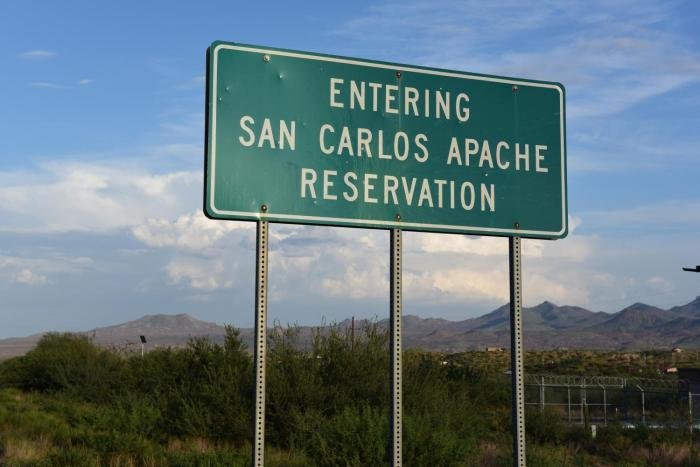
Mental health and substance abuse are significant challenges faced by the San Carlos Apache community. The prevalence of these issues is intertwined with the historical trauma, poverty, and social isolation experienced by the tribe.
Factors Contributing to Mental Health and Substance Abuse
The historical trauma endured by the San Carlos Apache people, including forced relocation, cultural suppression, and economic hardship, has had a lasting impact on their mental and emotional well-being. This trauma can manifest in various ways, including depression, anxiety, PTSD, and substance abuse.Poverty is another significant factor contributing to mental health and substance abuse issues.
The high rates of poverty on the reservation limit access to resources and opportunities, leading to feelings of hopelessness and despair.Social isolation can also contribute to mental health problems. Limited access to transportation, lack of employment opportunities, and the challenges of living in a remote area can lead to feelings of loneliness and isolation.
Mental Health and Substance Abuse Services
The San Carlos Apache Healthcare System provides a range of mental health and substance abuse services to tribal members. These services include:
- Individual and group therapy
- Medication management
- Substance abuse treatment programs
- Crisis intervention services
- Prevention and education programs
The San Carlos Apache Healthcare System also collaborates with other organizations to provide additional mental health and substance abuse services. These organizations include:
- The Indian Health Service (IHS)
- The Substance Abuse and Mental Health Services Administration (SAMHSA)
- Local non-profit organizations
The San Carlos Apache Healthcare System is committed to providing culturally appropriate and accessible mental health and substance abuse services to tribal members. They understand the unique needs of the community and strive to create a supportive and healing environment.
Partnerships and Collaborations
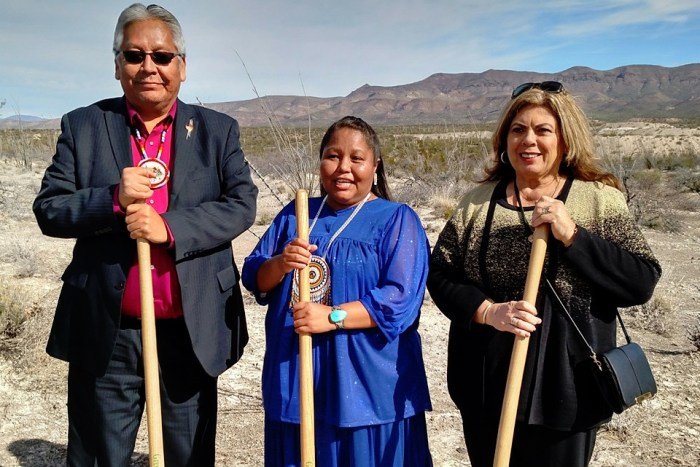
The San Carlos Apache Healthcare System recognizes the importance of collaboration and partnerships to effectively address the health needs of the tribe. The system actively engages with various organizations and agencies to enhance health services, improve access to care, and promote the well-being of the San Carlos Apache community.
Partnerships with Other Healthcare Organizations
These partnerships are essential for providing comprehensive healthcare services to the San Carlos Apache community. They leverage the expertise and resources of different organizations to address the unique health challenges faced by the tribe.
- The Indian Health Service (IHS) is a crucial partner, providing funding and support for healthcare services on the reservation.
- The University of Arizona’s Mel and Enid Zuckerman College of Public Health has partnered with the San Carlos Apache Healthcare System to conduct research and develop health programs tailored to the community’s needs.
- The Arizona Department of Health Services provides support for various health initiatives, including disease prevention and health education programs.
Partnerships for Health Promotion and Prevention
Collaborations are crucial for promoting health and preventing disease within the San Carlos Apache community. These partnerships leverage the expertise and resources of various organizations to develop and implement effective programs.
- The San Carlos Apache Healthcare System partners with the Arizona Department of Health Services to conduct community health assessments and develop health promotion programs.
- The tribe collaborates with local schools to implement health education programs, focusing on topics such as nutrition, physical activity, and substance abuse prevention.
- Partnerships with community organizations, such as the San Carlos Apache Recreation Department, are essential for promoting healthy lifestyles through recreational activities and community events.
Partnerships for Addressing Environmental Health Issues
Environmental health is a significant concern for the San Carlos Apache Tribe, and partnerships play a vital role in addressing these issues.
- The San Carlos Apache Healthcare System collaborates with the Environmental Protection Agency (EPA) to monitor environmental hazards and develop strategies for mitigating their impact on the community’s health.
- The tribe partners with the Arizona Department of Environmental Quality to address water quality issues and ensure safe drinking water for the community.
- Collaborations with local organizations, such as the San Carlos Apache Environmental Protection Agency, are crucial for implementing environmental protection programs and promoting sustainable practices.
Partnerships for Mental Health and Substance Abuse Services
Mental health and substance abuse are significant health challenges facing the San Carlos Apache community. Partnerships are crucial for providing comprehensive and culturally appropriate services.
- The San Carlos Apache Healthcare System partners with the IHS to provide mental health and substance abuse treatment services on the reservation.
- The tribe collaborates with local organizations, such as the San Carlos Apache Behavioral Health Services, to provide counseling, support groups, and addiction recovery programs.
- Partnerships with organizations like the National Council on Alcoholism and Drug Dependence (NCADD) are essential for accessing resources and training for mental health and substance abuse professionals.
Successful Partnerships and Collaborations
The San Carlos Apache Healthcare System has a history of successful partnerships and collaborations that have significantly impacted the health and well-being of the tribe.
- The partnership with the University of Arizona’s Mel and Enid Zuckerman College of Public Health has resulted in the development of culturally appropriate health education programs that have improved health outcomes for the community.
- The collaboration with the Arizona Department of Health Services has led to the implementation of successful disease prevention programs, such as the diabetes prevention program, which has helped reduce the prevalence of diabetes within the tribe.
- The partnership with the San Carlos Apache Recreation Department has resulted in the development of community-based programs that promote physical activity and healthy lifestyles, leading to improved overall health and well-being for the community.
Future Directions for San Carlos Apache Healthcare
The San Carlos Apache Tribe is committed to ensuring that its members have access to high-quality, culturally appropriate healthcare services. To achieve this goal, the Tribe has identified several key priorities for improving healthcare within the community.
Strategies for Addressing Health Disparities and Promoting Health Equity
The San Carlos Apache Tribe recognizes that health disparities exist within its community. To address these disparities, the Tribe is implementing a range of strategies aimed at promoting health equity. These strategies include:
- Increasing access to culturally competent healthcare services:The Tribe is working to ensure that healthcare providers understand and respect the cultural beliefs and practices of the Apache people. This includes providing training to healthcare providers on cultural competency and incorporating traditional Apache healing practices into healthcare services.
- Improving access to healthcare services:The Tribe is working to improve access to healthcare services by expanding the availability of transportation to medical appointments and by establishing new healthcare facilities in underserved areas.
- Addressing social determinants of health:The Tribe recognizes that social determinants of health, such as poverty, lack of education, and limited access to housing, play a significant role in health disparities. The Tribe is working to address these issues through programs that promote economic development, education, and affordable housing.
Ongoing Efforts to Improve Healthcare Services and Programs
The San Carlos Apache Tribe is continuously working to improve healthcare services and programs. Some of the ongoing efforts include:
- Expanding telehealth services:Telehealth services allow patients to receive healthcare services remotely, which can be particularly beneficial for those living in rural areas. The Tribe is expanding telehealth services to increase access to specialists and other healthcare providers.
- Developing innovative health promotion and prevention programs:The Tribe is developing new health promotion and prevention programs that are tailored to the specific needs of the Apache community. These programs aim to address chronic diseases such as diabetes, heart disease, and cancer.
- Strengthening partnerships with other healthcare organizations:The Tribe is strengthening partnerships with other healthcare organizations, such as the Indian Health Service (IHS) and local hospitals, to improve coordination of care and ensure that Apache patients receive the best possible care.
Last Recap
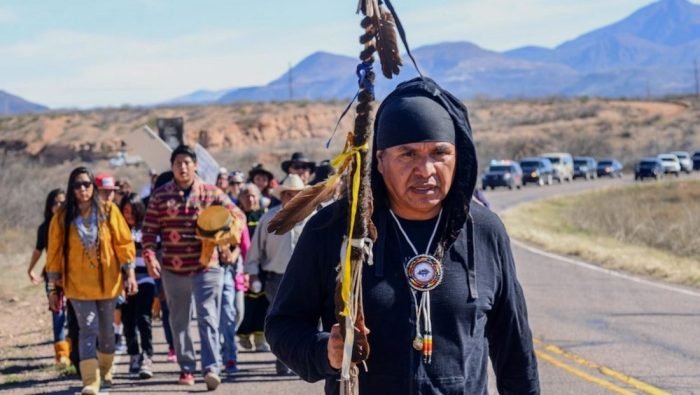
The San Carlos Apache community’s journey towards health equity is a powerful example of resilience and adaptation. By understanding the historical context, current challenges, and ongoing efforts, we can better appreciate the tribe’s unwavering commitment to their health and well-being.
The San Carlos Apache healthcare system, rooted in cultural traditions and supported by partnerships, stands as a beacon of hope for a future where health disparities are eradicated and the tribe’s legacy of strength and resilience continues to flourish.
FAQ Insights
What are some of the traditional healing practices used by the San Carlos Apache people?
The San Carlos Apache have a long history of traditional healing practices, which often involve the use of plants, herbs, and ceremonies. These practices are deeply intertwined with their cultural beliefs and values and play a significant role in maintaining their overall health and well-being.
What are the main environmental health issues facing the San Carlos Apache community?
The San Carlos Apache community faces several environmental health challenges, including water quality issues, air pollution from nearby industrial facilities, and the potential for hazardous waste contamination. These factors can have a significant impact on the tribe’s health and well-being.
What are the major health disparities experienced by the San Carlos Apache community?
The San Carlos Apache community experiences significant health disparities compared to the general population, including higher rates of diabetes, heart disease, and substance abuse. These disparities are often linked to factors such as poverty, limited access to healthcare, and historical trauma.